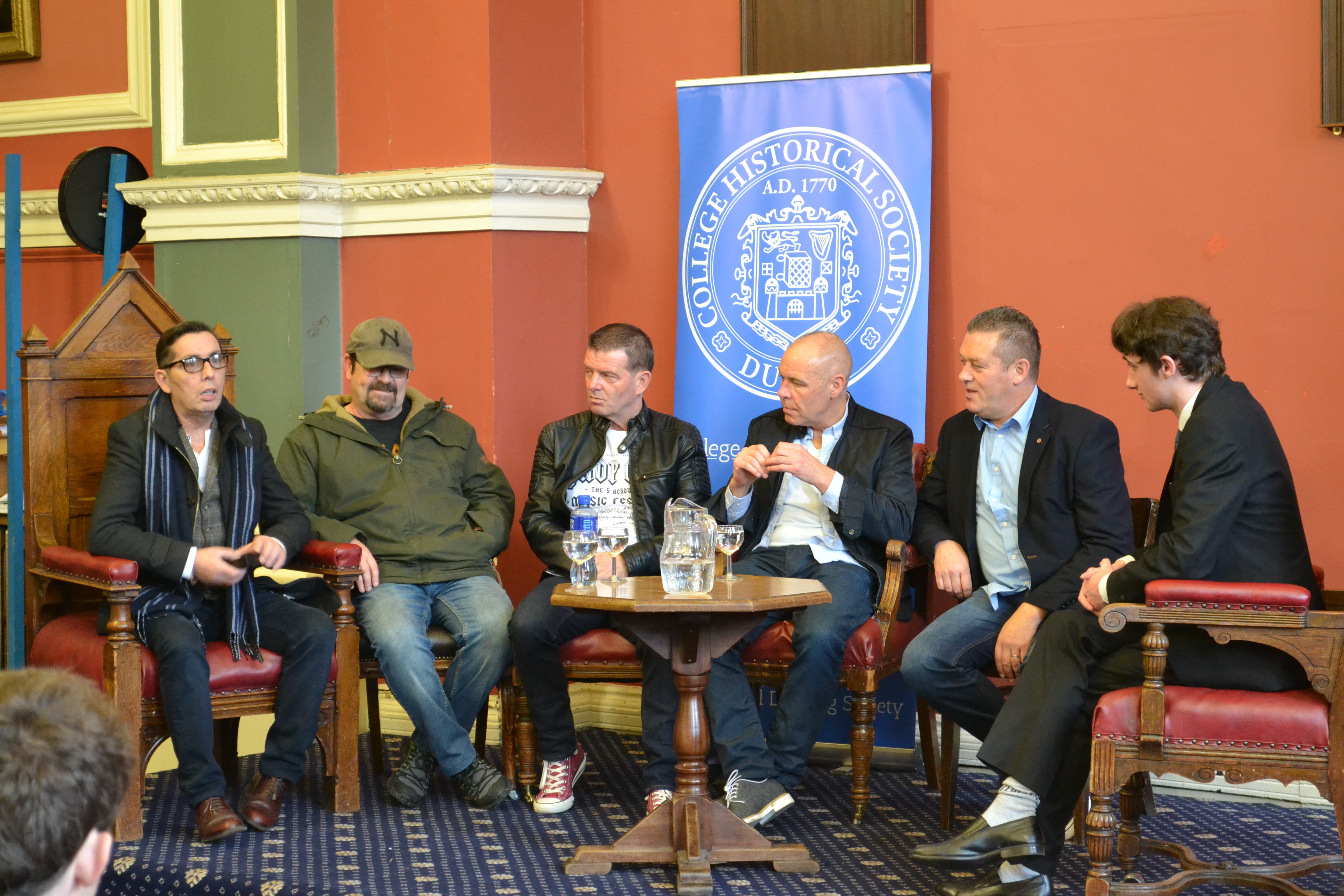Foregoing the usual grand entrance of guests to the Graduates Memorial Building (GMB), Aslan entered the room with a brusque “Morning, all” from guitarist Billy McGuinness and took their seats at the head of the room.
Introduced by the College Historical Society (the Hist) Auditor, Paul Molloy, who presented them with the Burke Medal for Outstanding Contribution to the Arts, Aslan brought a refreshing lack of pretension to proceedings, joking there’d be “some fight to see who’d get to keep it”. The Finglas band, formed in school under the name “Electron” in the mid-1980s, discussed their early days in north Dublin, their success and their thoughts on music piracy and streaming during a riveting Q&A session.
Though the event was poorly attended, the band were jovial and engaging, quipping that the “room’s not full, but we’re used to that”. Led by singer Christy Dignam, with occasional interjections from the rest of the band, they spun stories of their rise from the Dublin music scene, attributing the strength of the scene to the poor economic conditions at the time. “Because there were no jobs, it was cool for you to just go to your garage and rehearse and learn to play, because of that there was a real vibrant scene.” Dogged in their infancy by comparisons to U2, who struck it big just before them, they compared the atmosphere at the time to “Liverpool after the Beatles”, with record labels desperate to find the next big Irish band.
It was into this atmosphere that they released their first single, “This Is”, in 1986, a song that remains a favourite of theirs to play live. Seeking to avoid the “generic sound” they felt plagued Dublin’s music scene, they worked hard on the song, not wanting people to “automatically assume it was an Irish song because of [the low production values]”. Initial success did not begin immediately, which Dignam attributed to the perception that “in between mugging women and robbing cars, [they] wrote the odd song” due to their working-class background. But success did come for the band, with the single becoming a huge hit.
The band lamented the current state of the music industry, drawing attention to the rise of internet piracy and streaming. Though frustrated with the impact of piracy and streaming on the revenue generated by album sales, the band stressed that sales should not be the sole barometer of achievement: “Success should never be measured by commercial success. If that was the case, Van Gogh was a shit painter.”
Still, the lack of return on recorded music irks them, with the band stating that if current trends continue, the unrecouped costs to artists would “detrimentally affect the music”. They saw streaming services like Spotify as no substitute for real sales, as the artist is only paid a miniscule amount for each stream of a song. Ultimately, they see live music as the best way for future musicians to make a living, with McGuinness saying, “years ago you’d tour to promote the record, nowadays you put out a record to promote the gig you’re doing”.
They saw a bright future for rock music in the country, pointing to the likes of Kodaline as bands that are succeeding despite the challenges of today’s music industry. The band seemed optimistic about their own future as recording and touring musicians, and about the future of Irish music in general. Decades of writing, touring and performing seem to have only strengthened their bond and their mutual love of music.







